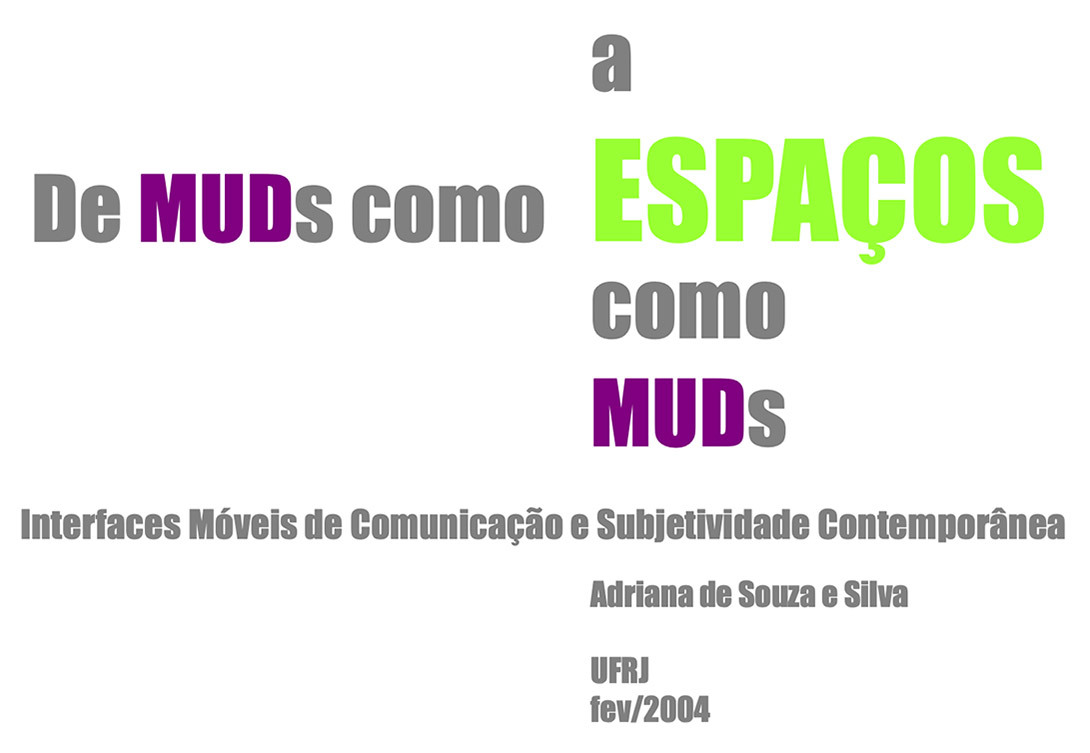Ph.D.

Communication and Culture, Department of Communication, Federal University of Rio de Janeiro, Brazil (2004).
This dissertation addresses how mobile communication technologies, such as cell phones, play an active role in creating new types of communication and social networks in hybrid spaces. Hybrid spaces are formed by the blurring of borders between physical and digital spaces. I analyze the shift of social places from cyberspace to hybrid spaces. Nomadic technology devices are responsible for producing new social networks in a hybrid space that interconnects the physical and the virtual, due to their users’ perpetual mobility. During the last decade, multiuser environments in cyberspace have frequently been regarded as spaces in which users could project their imagination. Moreover, digital spaces have been considered as essentially disconnected from physical spaces. Nowadays, these multiuser environments are enacted in hybrid spaces, because we carry with us nomadic technology devices that are constantly connected to the internet. To develop this argument, I analyze the existing literature on cyberspace and mobile technology, emphasizing concepts such as virtual, cyberspace, immersion, and hybrid. Practical aspects of this research include the analysis of current mobile practices, via interviews with artists and scholars who think and produce work on new mobile media, in addition to an Internet survey applied in Brazil about people’s use of cell phones in this country. [Defense slides]